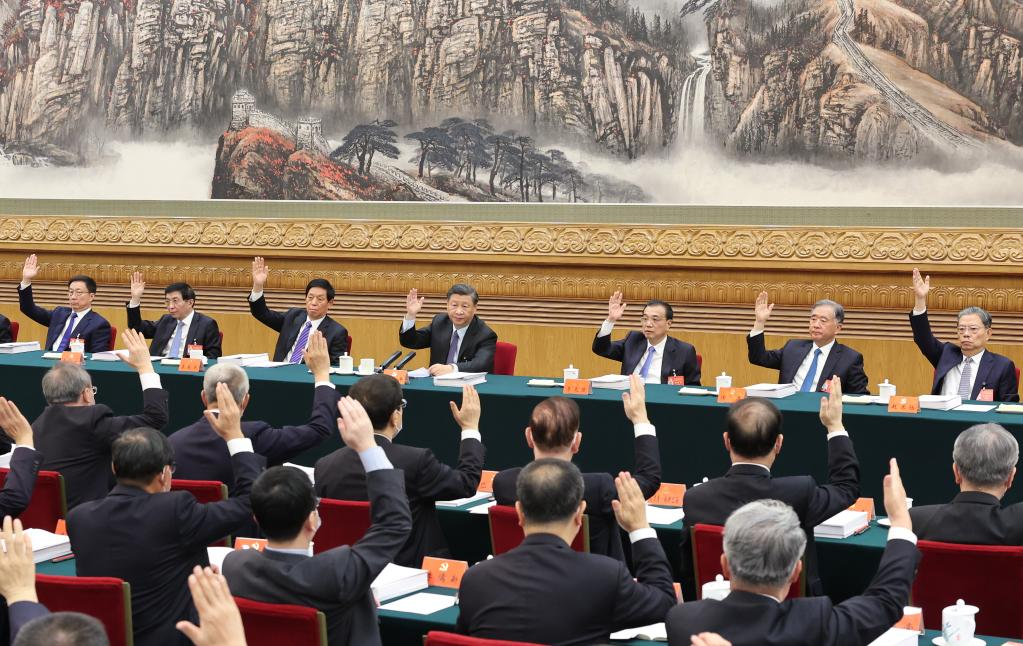Alwaght- China’s Communist Party has concluded its week-long gathering at the National Congress in the capital Beijing by approving amendments to its charter and endorsing President Xi Jinping’s “core” leadership.
The gathering of around 2,300 delegates wrapped up at the Great Hall of the People in Beijing on Saturday, with China's ruling party unanimously passing a resolution on changes and approving a sweeping reshuffle that saw a number of top officials, including Chinese Premier Li Keqiang, step down.
According to the amendments to the party charter, the delegates approved a call obliging all party members to "uphold Comrade Xi Jinping's core position on the Party Central Committee and in the Party as a whole.”
Following the new changes, Xi is highly expected to be unveiled as the ruling party’s general secretary on Sunday, allowing Xi to sail through to a third term as China's president, which is due to be announced during the government's annual legislative sessions in March.
The unanimously approved amendments also allowed the incumbent Chinese president to appoint new allies, introducing a new Central Committee of around 200 senior party officials.
A list of officials in the new Central Committee revealed that four out of seven members of the party's Standing Committee, the apex of power, would not be included in the group. Among them is current Premier Li Keqiang, as well as fellow Politburo Standing Committee members Wang Yang -- who was touted as a possible successor to Li -- Han Zheng, and Li Zhanshu.
Han and Li Zhanshu were widely expected to step down, having surpassed the informal age limit of 68 for Politburo-level officials -- a requirement not extended to 69-year-old Xi.
Wang and Li Keqiang, both 67, could still have continued in the Standing Committee or 25-member Politburo for another five-year term.
Other high-profile Communist Party top brass absent from the new Central Committee include high-ranking diplomat Yang Jiechi and economic tsar Liu He.
Xi has on numerous occasions announced plans to continue expanding his years-long campaign against corruption within the ruling party through the creation of the new committee.



























